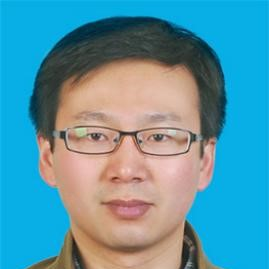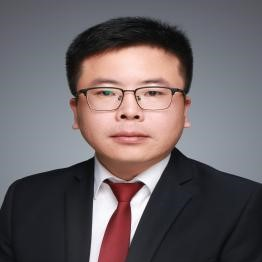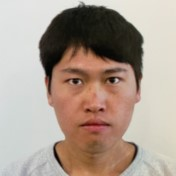Fractional Dynamical Systems and Its Applications in Science and Engineering
A special issue of Mathematics (ISSN 2227-7390). This special issue belongs to the section "Difference and Differential Equations".
Deadline for manuscript submissions: closed (31 October 2023) | Viewed by 7224
Special Issue Editors
Interests: stochastic PDEs, nonlinear analysis; fractional dynamics systems; nonlocal evolution equations; random dynamical systems; random attractors; operator semigroups; nonlocal differential equations with delay, PDEs for symmetry, numerical analysis
Special Issues, Collections and Topics in MDPI journals
Interests: nonlinear analysis; fractional control systems; nonlinear functional analysis; fractional impulsive systems; control science and engineering
Special Issue Information
Dear Colleagues,
In applied mathematics and mathematical analysis, the fractional derivative is a derivative of any order, real or complex. During the last decade, fractional calculus has gained importance in both theoretical and applied aspects of many branches of science and engineering.
Recently, several fractional techniques have come into the spotlight due to the ability to model many complex natural phenomena that cannot be formulated in integer-order nonlinear evolution equations. The existence of this kind of calculus extends to many distinct fields, such as infectious disease epidemiology, neural networks, fluid mechanics, population ecology, solid-state physics, wave propagation in plasma physics, thermodynamics, condensed matter physics, nonlinear optics, civil engineering, quantum mechanics, plasma wave, soil mechanics, and so on. Fractional calculus is considered one of the most notable branches of science, where it provides a considerable number of explanations and details about the nonlocal property since it depends on both historical and current states of the problem in contrast to classical calculus, which depends on the current state only.
Based on the importance of this kind of calculus, many definitions have been being derived, such as fractional Riemann–Liouville derivatives, Caputo, the Caputo–Fabrizio definition, conformable fractional derivatives, and so on. Computational and numerical schemes can be applied to obtain various types of important results for these models.
It is worthwhile to publish a Special Issue on this topic to highlight recent advances achieved by mathematicians and engineers actively working in this field. The purpose of this Special Issue is to promote research in the field of fractional calculus and its applications to science and engineering. All original and high-quality manuscripts in the emerging field of fractional differential equations and their potential applications in all areas of science are welcome.
Potential topics include but are not limited to the following:
- Survey on fractional differential equations;
- Fractional differential equations with uncertainty;
- Fractional dynamics systems;
- Applications of fractional theory;
- Existence, controllability, oscillatory ability, and stability of nonlinear systems;
- Optimal controls for fractional functional differential equations;
- Applications of fractional problems in science and engineering;
- Fractional order nonlinear systems: modeling, analysis, and simulation;
- Inequalities with applications to differential and integral equations;
- Numerical methods and numerical analysis of fractional differential equations;
- Other theoretical and experimental aspects of fractional differentiation and related approaches.
Dr. Pengyu Chen
Prof. Dr. Haiyong Qin
Dr. Haoyu Niu
Guest Editors
Manuscript Submission Information
Manuscripts should be submitted online at www.mdpi.com by registering and logging in to this website. Once you are registered, click here to go to the submission form. Manuscripts can be submitted until the deadline. All submissions that pass pre-check are peer-reviewed. Accepted papers will be published continuously in the journal (as soon as accepted) and will be listed together on the special issue website. Research articles, review articles as well as short communications are invited. For planned papers, a title and short abstract (about 100 words) can be sent to the Editorial Office for announcement on this website.
Submitted manuscripts should not have been published previously, nor be under consideration for publication elsewhere (except conference proceedings papers). All manuscripts are thoroughly refereed through a single-blind peer-review process. A guide for authors and other relevant information for submission of manuscripts is available on the Instructions for Authors page. Mathematics is an international peer-reviewed open access semimonthly journal published by MDPI.
Please visit the Instructions for Authors page before submitting a manuscript. The Article Processing Charge (APC) for publication in this open access journal is 2600 CHF (Swiss Francs). Submitted papers should be well formatted and use good English. Authors may use MDPI's English editing service prior to publication or during author revisions.
Keywords
- survey on fractional differential equations
- fractional differential equations with uncertainty
- fractional dynamics systems
- applications of fractional theory
- existence, controllability, oscillatory ability, and stability of nonlinear systems
- optimal controls for fractional functional differential equations
- applications of fractional problems in science and engineering
- fractional order nonlinear systems: modeling, analysis, and simulation
- inequalities with applications to differential and integral equations
- numerical methods and numerical analysis of fractional differential equations
- other theoretical and experimental aspects of fractional differentiation and related approaches







